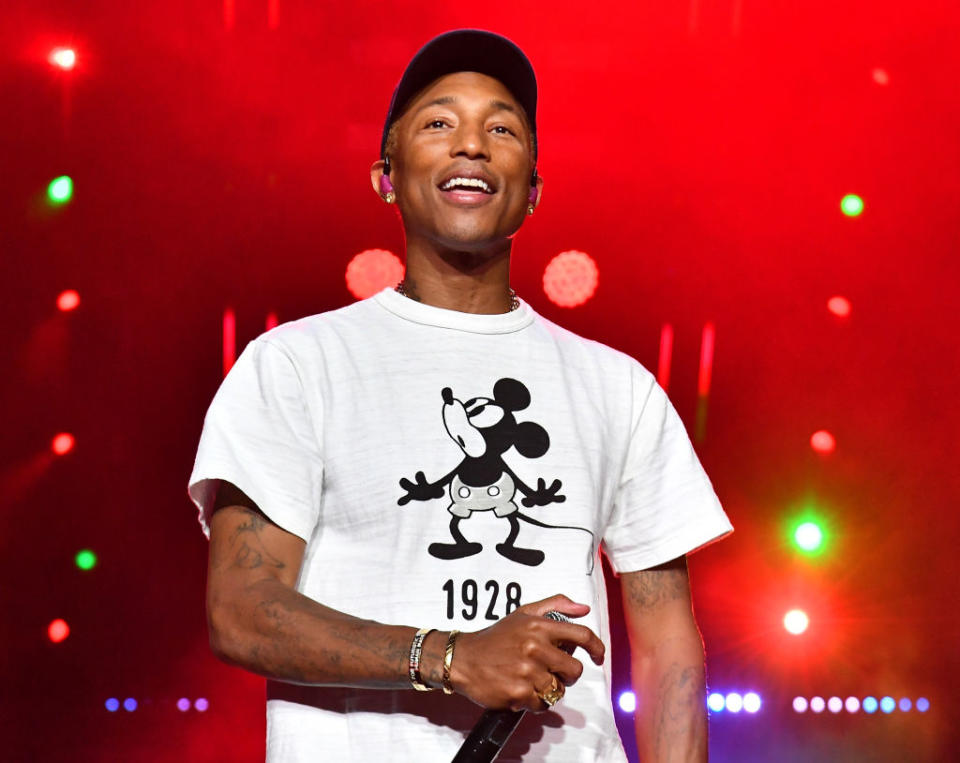Pharrell Williams says 'Blurred Lines' made him realise we 'live in a chauvinist culture'
The song Blurred Lines was everywhere the summer of 2013, topping the charts in dozens of countries and becoming the highest-selling song of the year.
However, Pharrell Williams, who wrote, produced and performed the track, alongside Robin Thicke and T.I., regrets it now.
“Some of my old songs, I would never write or sing today,” the 46-year-old said in the new issue of GQ. “I get embarrassed by some of that stuff. It just took a lot of time and growth to get to that place.”
He said Blurred Lines, in particular, “opened me up.” And it started with the way the song was deemed misogynistic by some.
Read more: Finley Quaye escapes jail over drunken bar attack
“I didn’t get it at first. Because there were older white women who, when that song came on, they would behave in some of the most surprising ways ever. And I would be like, wow,” Williams explained.

“They would have me blushing. So when there started to be an issue with it, lyrically, I was like, ‘What are you talking about?’ There are women who really like the song and connect to the energy that just gets you up. And I know you want it — women sing those kinds of lyrics all the time. So it’s like, what’s rapey about that?”
Critics pointed to lyrics such as, “I know you want it,” and even the song title, as potentially problematic. While Williams didn’t agree at first, his thinking evolved.
“I realised that there are men who use that same language when taking advantage of a woman, and it doesn’t matter that that’s not my behaviour. Or the way I think about things,” Williams shared.

“It just matters how it affects women. And I was like, ‘Got it. I get it. Cool.’ My mind opened up to what was actually being said in the song and how it could make someone feel. Even though it wasn’t the majority, it didn’t matter. I cared what they were feeling, too.
“I realised that we live in a chauvinist culture in our country. Hadn’t realised that. Didn’t realise that some of my songs catered to that. So that blew my mind.”
Williams earlier defended the song in a 2014 interview with Pitchfork, insisting that the song was about women claiming their independence. “What I was trying to say was: ‘That man is trying to domesticate you, but you don’t need no papers — let me liberate you.”
Six years after Blurred Lines was released, Williams is the face of the “Now Is Her Time” campaign for Adidas. He reiterated something he’s said before, that he believes now is the time for women to lead.
“Man, what would the world be like if women held all of the highest positions worldwide?” Williams questioned. “Women are waking up every day, more and more, to the fact that they have the power. Women, millennials, and the Gen-Zers have the power. And there are a lot of men who recognise their privilege, and they use it for good. We’re such a capable species.
“We have the ability if we can just galvanise for good. The only thing we got to do is balance the scales. We have to understand power. And who has it.”

 Yahoo News
Yahoo News 
